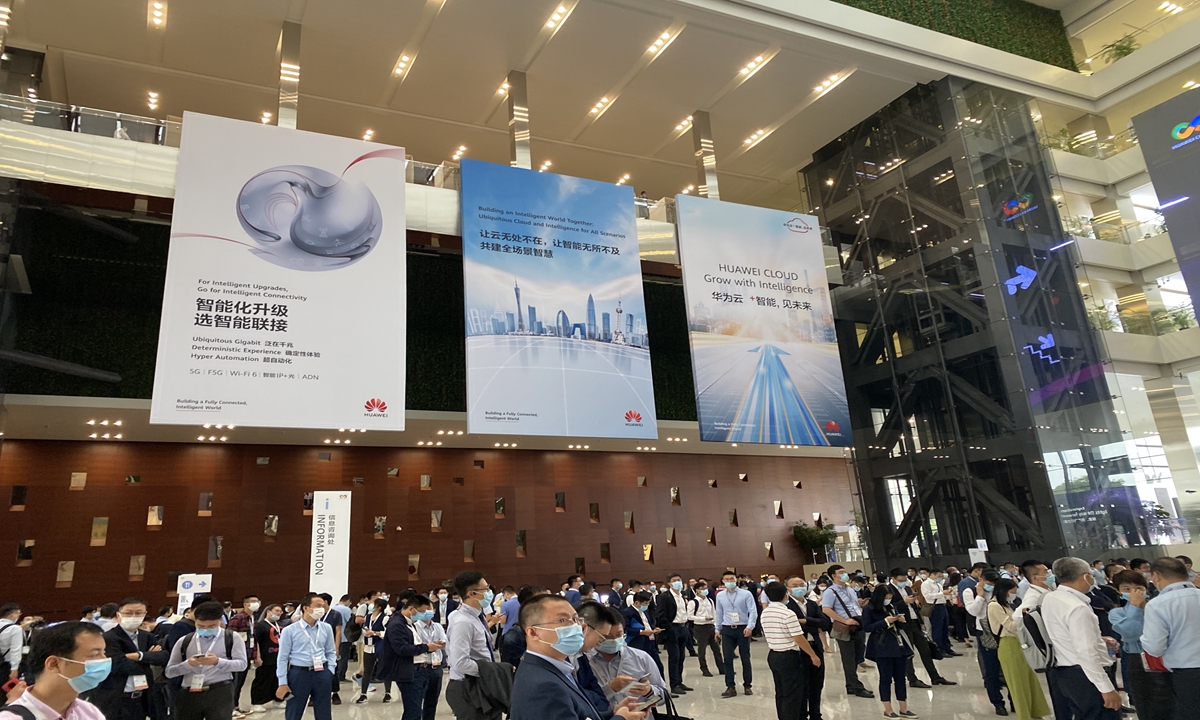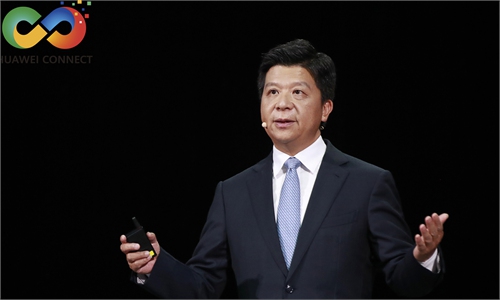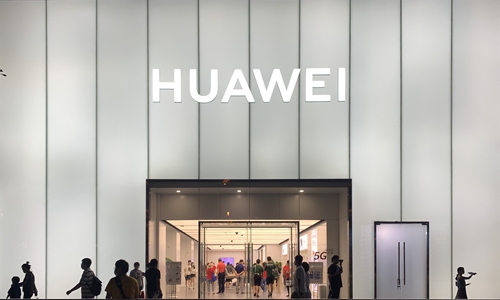SOURCE / INDUSTRIES
Huawei says ‘Clean 5G’ should not be defined by a single administration or some politicians

Attendees at the Huawei Connect 2020 in Shanghai on Wednesday Photo: Shen Weiduo/GT
Huawei has yet to see any adverse impact on its global 5G business from the US "Clean Network" initiative, and hopes that the industry would introduce "rational standards" for 5G rather than defined by a single administration or politician, a senior executive from Huawei told the Global Times on Wednesday.
The comments come as the US said last month it would expand a so-called "Clean Network" initiative, which basically means telecom networks will be stripped of anything Chinese.
Led by Secretary of State Mike Pompeo, the US unveiled a five-pronged approach on August 6, hoping that efforts can be made to remove Chinese mobile apps from Apple and Android app stores; Huawei smartphones will be prohibited from pre-installing popular US apps; and cloud services offered by Chinese internet giants Alibaba, Baidu, and Tencent will be discouraged.
"I believe that countries, our customers, and operators will make wise choices based on factual and rational rules, and we have not seen the program have a clear impact on Huawei's 5G business," David Wang Tao told the Global Times during a group interview on Wednesday.
Whether the network is clean really depends on how you define it. In the digital era, we need an objective and rational rule to promote our entire economic prosperity and enhance security, reliability, and mutual trust, Wang said.
"As an enterprise, we hope that governments of various countries can rely on the certainty of rules and systems to point out the direction for the development of enterprises. In terms of 5G, how to define 5G, whether it is clean and how to define whether 5G is safe requires a rational standard, and a certain government or certain political figure cannot define what clean 5G is," Wang said.
This is conducive to each country choosing technology suppliers and promoting its overall social competitiveness under this clear framework of laws and regulations, instead of defining a clean network "based on a specific purpose," Wang said.
The Chinese Foreign Ministry previously slammed the US initiative as an "arbitrary" action that runs counter to market principles and international trade rules, and is aimed at preserving the US' dominance in the high-tech sector.
"The US itself has countless stains, yet it talks big on a so-called 'clean network.' This is absurd and laughable," Wang Wenbin, a spokesperson for the ministry, said, adding that there has been no security incidence involving the Chinese firms, like exposed US surveillance projects such as the PRISM program.



